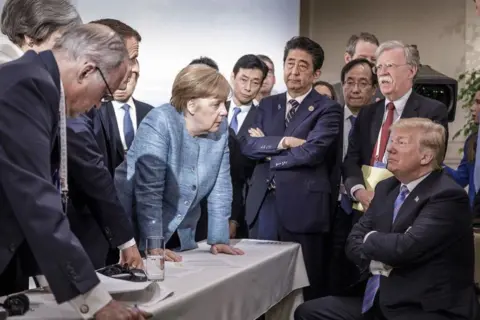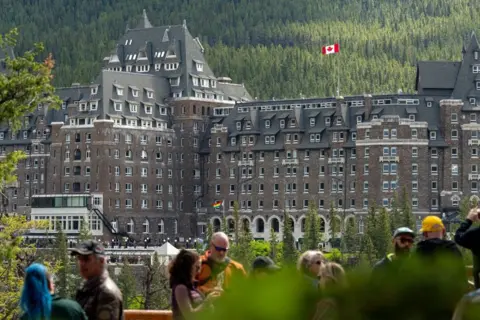- Video
Construction sites appear in Gaza ahead of Israeli-US aid plan rejected by UN, images show
时间:2010-12-5 17:23:32 作者:Headlines 来源:Americas 查看: 评论:0内容摘要:The fighting continued until January 1949 when an armistice agreement between Israel and Egypt, Lebanon, Jordan and Syria was forged. The 1949 Armistice Line is also known as the Green Line and is the generally recognised boundary between Israel and the West Bank. The Green Line is also referred to as the (pre-) 1967 borders, before Israel occupied the rest of Palestine during the 1967 war.The fighting continued until January 1949 when an armistice agreement between Israel and Egypt, Lebanon, Jordan and Syria was forged. The 1949 Armistice Line is also known as the Green Line and is the generally recognised boundary between Israel and the West Bank. The Green Line is also referred to as the (pre-) 1967 borders, before Israel occupied the rest of Palestine during the 1967 war.
the tariffs will not lastPosting on X, formerly known as Twitter, on Thursday, lawyer Peter Harrell, a fellow at the Carnegie Endowment for International Peace, wrote that, if the trade court’s decision “is upheld, importers should eventually be able to get a refund of [IEEPA] tariffs paid to date. But the government will probably seek to avoid paying refunds until appeals are exhausted.″

“The power to decide the level of tariffs resides with Congress. The IEEPA doesn’t even mention raising tariffs. And it was actually passed in order to narrow the president’s authority. Now the president is using it to rewrite the tariff schedule for the whole world,” Greg Schaffer, professor of international law at Georgetown Law School, told Al Jazeera.The US trade court did not weigh in on tariffs put in place by other laws, such as the Trade Expansion Act – the law used to justify tariffs on steel, aluminium, and automobiles.There are additional targets for similar narrow tariffs, such as

pharmaceuticals from China.In April, the White House announced that the US Department of Commerce launched an investigation to see if the US reliance on China for active ingredients in key medications posed a national security threat, thus warranting tariffs.

“This is not an issue of whether the president can impose tariffs,” said Fein, the former associate deputy attorney general. “He can under the 1962 act after there’s a study and after showing that it’s not arbitrary and capricious and that it’s a product-by-product, not a country-by-country approach.”
“If he doesn’t like that, he can ask Congress to amend the statute.”“Some of the more sophisticated gangs are getting out of the human trafficking game and starting to trick workers to come,” Horsey said.
“People don’t like to answer an advert for criminal scamming, and it’s hard to advertise that. But once they’re there, it’s like – actually, we will pay you. We may have taken your passport, but there is a route to quite a lucrative opportunity here and we will give you a small part of that,” he said.The issue of salaries paid to coerced and enslaved workers complicates efforts to repatriate trafficking victims, who may be considered complicit criminals due to their status as “paid” workers in the scam centres, said Eric Heintz, from the US-based anti-trafficking organisation International Justice Mission (IJM).
“We know of individuals being paid for the first few months they were inside, but then it tapers off to the point where they are making little – if any – money,” Heintz said, describing how victims become “trapped in this cycle of abuse unable to leave the compound”.“This specific aspect was a challenge early on with the victim identity process – when an official would ask if an individual previously in the scam compound was paid, the victim would answer that initially he or she was. That was enough for some officials to not identify them as victims,” Heintz said.
- 最近更新
- 2025-07-07 10:49:48North Face and Cartier customer data stolen in cyber attacks
- 2025-07-07 10:49:48US vetoes UN call for unconditional Gaza ceasefire
- 2025-07-07 10:49:48U.S. Bank vs. Chase: Which banking giant offers better value for your money?
- 2025-07-07 10:49:488 money lessons from the 2008 Great Recession that apply today: A reality check
- 2025-07-07 10:49:482025 financial checklist: Your guide to protecting your assets and building wealth
- 2025-07-07 10:49:48Disney makes hundreds more layoffs as it cuts costs
- 2025-07-07 10:49:485 moves you should NOT make during a recession: Expert tips for weathering economic storms
- 2025-07-07 10:49:48Putin will seek revenge for Ukraine drone attack, warns Trump
- 热门排行
- 2025-07-07 10:49:48Israel kills 29 Palestinians as Hamas says ready for Gaza ceasefire talks
- 2025-07-07 10:49:48Can you lose money in a high-yield savings account? Top 6 risks to watch out for
- 2025-07-07 10:49:48The History and Future of the Federal Reserve’s 2 Percent Target Rate of Inflation
- 2025-07-07 10:49:48'I got used to having Freddie Mercury next door'
- 2025-07-07 10:49:48Candace Cameron Bure, 49, Turns Heads While Rocking Itty-Bitty Bikini
- 2025-07-07 10:49:48TikTok Shop food listings 'putting people at risk'
- 2025-07-07 10:49:48How much should you have in your 401(k)? How your balance compares to others by age
- 2025-07-07 10:49:48Oreo maker sues Aldi in US over 'copycat' packaging
- 友情链接
- Did Trump really strike Gulf deals worth $2tn? Is Britain really inching back towards the EU? Chinese students find themselves caught in the US-China crossfire - again Venezuela's ruling party claims election win as opposition boycotts poll A soft knock - how police arrest a suspected paedophile UK sea temperatures soar after exceptionally warm spring Your pictures on the theme of 'monochrome' Sophie Habboo joins husband Jamie Laing as Radio 1 co-host Fans descend on village for Mike Peters' funeral Nvidia revenues surge despite tariff uncertainty Gaza baby sent back to war zone after open-heart surgery in Jordan New York crypto investor accused of kidnapping Italian tourist Disasters spur investment in flood and fire risk tech Texas governor signs online safety law in blow to Apple and Google 2025 Sony World Photography Awards: Winners revealed Sudan 'on brink' of health crisis with cholera outbreak AI chatbot to be embedded in Google search UK weather forecast more accurate with Met Office supercomputer Work inspired by military's LGBT ban to be lit up Is Trump allowed to accept $400m luxury plane as a gift? Marathi cinema goes global - but can it step outside of Bollywood's shadow? Charity shop donated guitars fetch £12,000 at auction Rat-borne diseases cause crisis in Sarajevo AI system resorts to blackmail if told it will be removed Five arrested over protests at Gal Gadot filming What's next for Remember Monday? Ukraine's 'chaotic' withdrawal from Russia, in its soldiers' words Glacier collapse buries most of Swiss village It's the Doctor Who and The Last of Us finales: What's coming up this week AI system resorts to blackmail if told it will be removed
